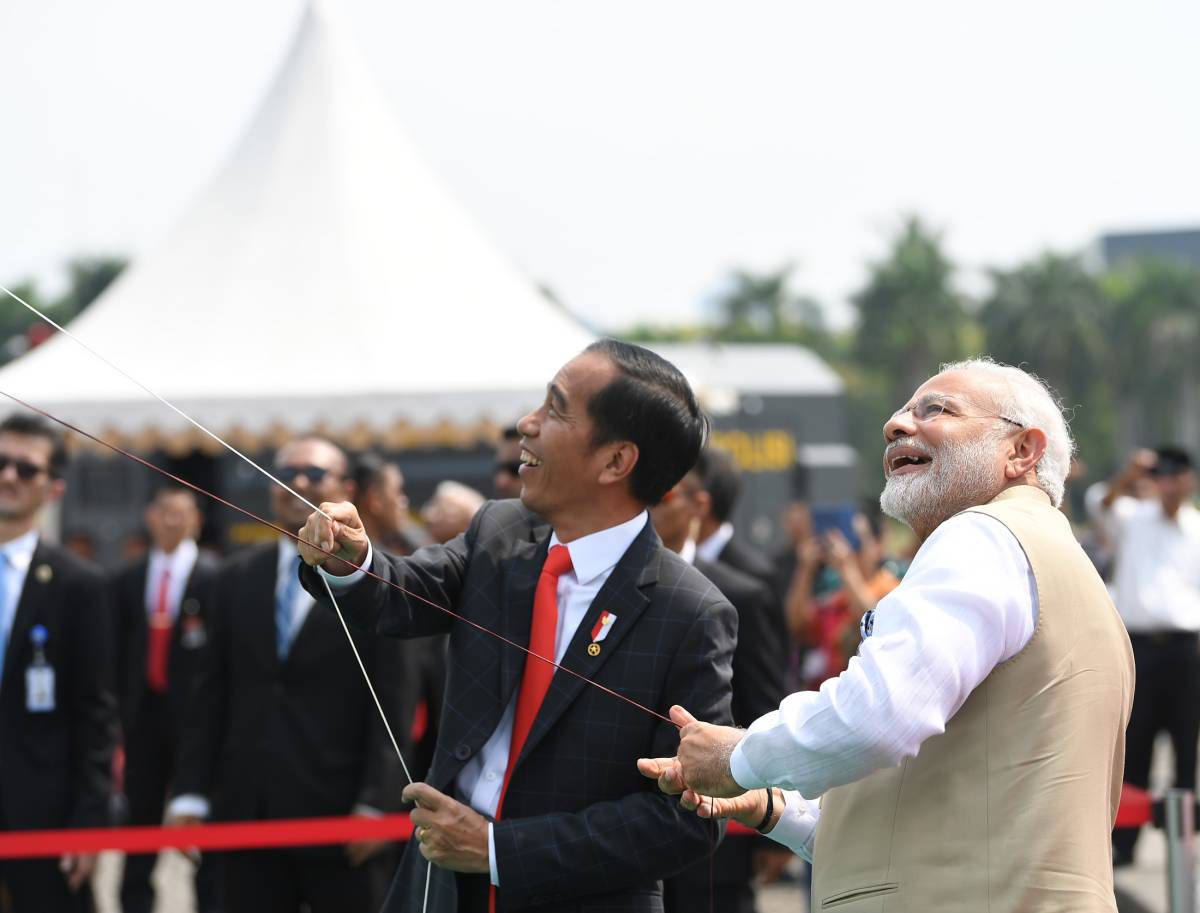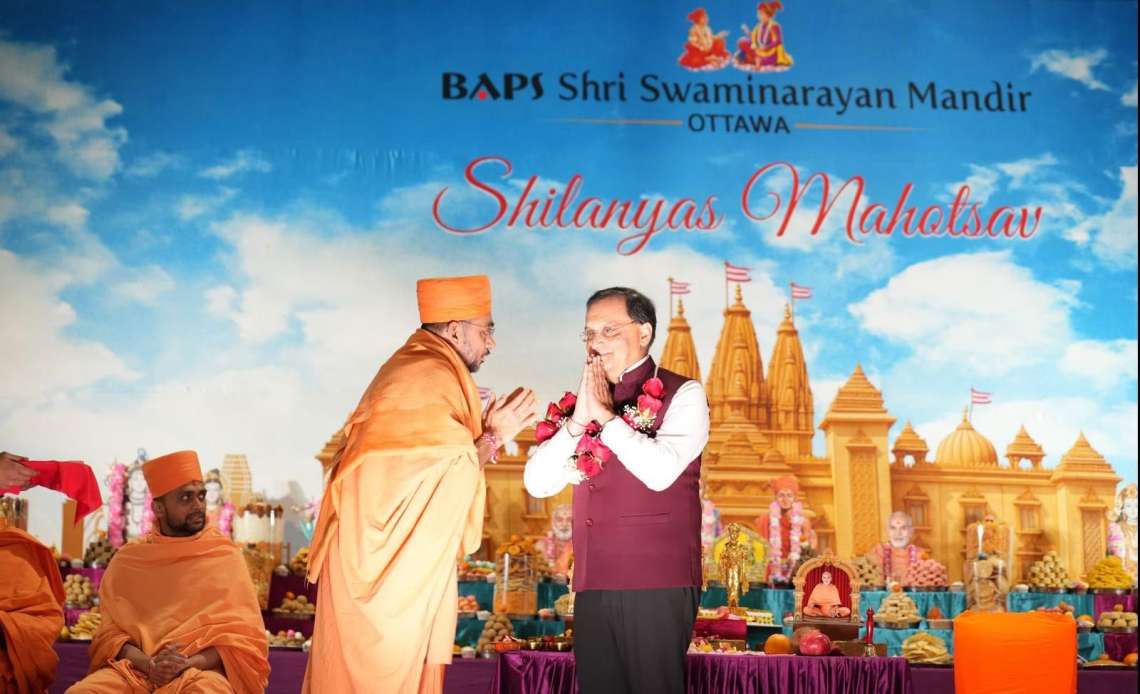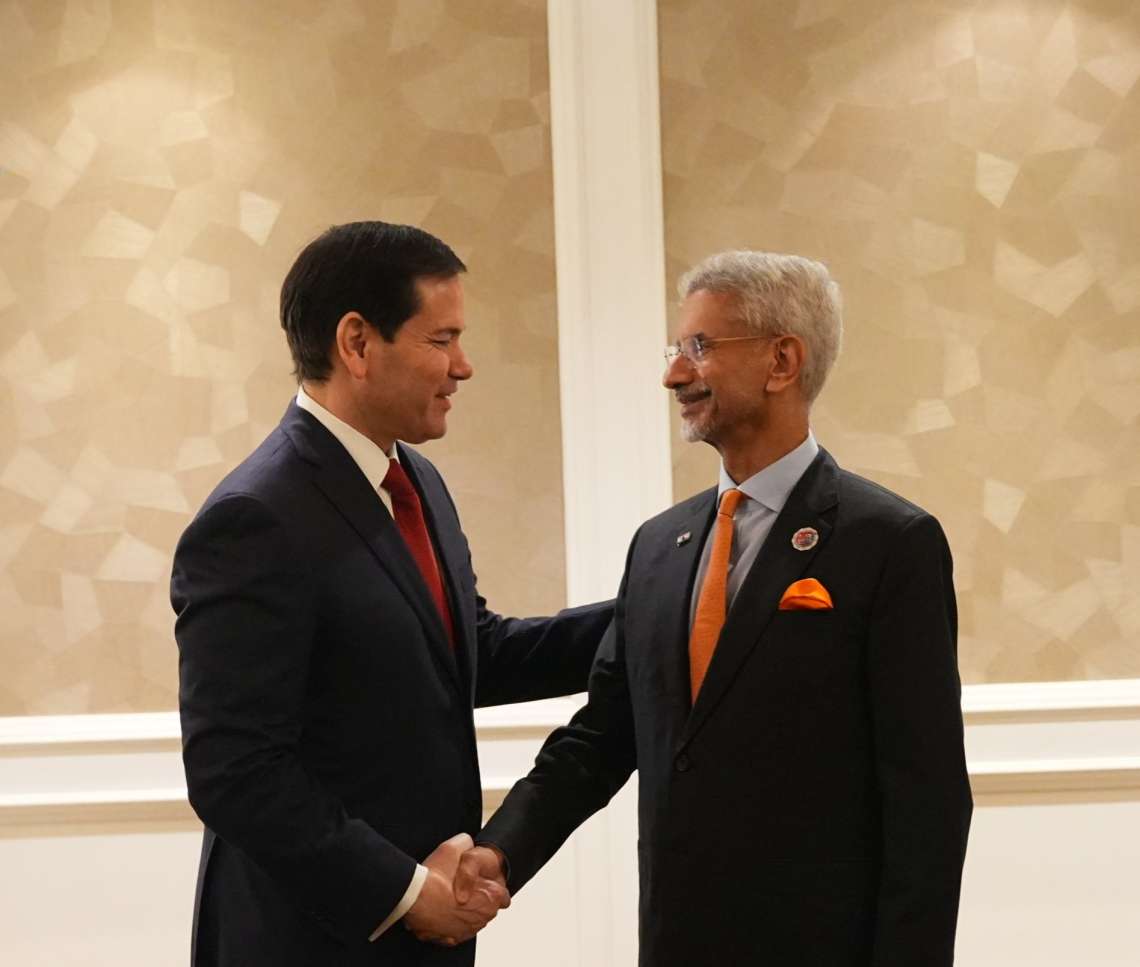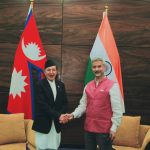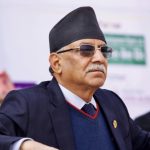Jakarta’s economic stakes in China are quite significant. Beijing is not only its largest trading partner, but also the fact that unlike India its trade balance is quite low, writes Baladas Ghoshal
Have the relations between India and Indonesia, the two largest democracies and emerging powers in Asia, matured to their full potential, or is it work half in progress?
The answer is both yes and no! Over the years, both governments apparently have made conscious efforts to enhance cooperation and give real substance to it. Defence and security cooperation are in place.
In 2018, bilateral relations were elevated to “Comprehensive Strategic Cooperation” which added heft to the building momentum. Cooperation in the field of human resource development, education, science and technology have also been given some attention. However, the potential for trade between the two countries remains severely under tapped. New trade links have been relatively slow to develop and Indian investments in Indonesia have been minimal. Is there a lack of will on the part of both governments or there are some structural weaknesses that account for the glass half-full?
Two elements, among others, are crucial in the understanding and analysis of relations between two countries – one is a pull factor and the other is the presence of a critical elite in both countries, who would be batting for widening and deepening their relationships. Except in the case of Singapore and Vietnam, we have not been able to build that critical elite in other Southeast Asian countries, despite our historical and cultural links for centuries. The third is the cultural moorings and their behaviour attributes of each other’s decision-makers. Indians, by and large are direct in their communication behaviour, whereas the Southeast Asians are subtle and sometimes inscrutable. Success or failure in diplomacy lies in acquiring the skill in understanding the cultural moorings of the targeted audience. The evolving and the future relationship between India and Indonesia have to be situated within these elements.

What pulls a country towards the other, based on their perceived interests, or the tangible benefits they can derive from the relationship, is the most important driving force. That pull factor was palpable most prominently in the late 1940s and early 1950s, when Indonesia and India needed each other and their interests fully converged. Indonesia badly needed the support of New Delhi in the most difficult period of their nationalist struggle against the Dutch, both material and for support at the United Nations for international recognition of the nascent state. Nehru needed the support of President Sukarno for projecting his non-aligned world view and his leadership into the international arena.
That golden period of our relationship and bonhomie didn’t last long. By the time Bandung came, that camaraderie disappeared and we began to drift apart in different directions, particularly during the last days of Sukarno. Even while the relationship became normal during Suharto years, complexities of international relations together with a lack of major economic stakes in each other did not add much substance to it, despite all declarations of usual diplomatic niceties. This is not to undermine the relationship that has grown in multiple areas over the years till date, but only to stress the missing pull factor that drove us closer to each other in the earlier years, notwithstanding the Comprehensive Strategic Partnership and joint military exercises, including the recent CORPAT exercises.
To be fair, India and Indonesia do not converge on all important issues of their national interests with their geo-political focus sometimes different. India is an Indian Ocean-centric power, Jakarta’s focus is more on the Pacific. For many years, until the coming of President Jokowi, the Indian Ocean had a minor place in Indonesia’s military doctrine. Securing Malacca Straits from external intrusion and patrolling it with Malaysia and Singapore was important, but it was over-zealous in restricting it to themselves.
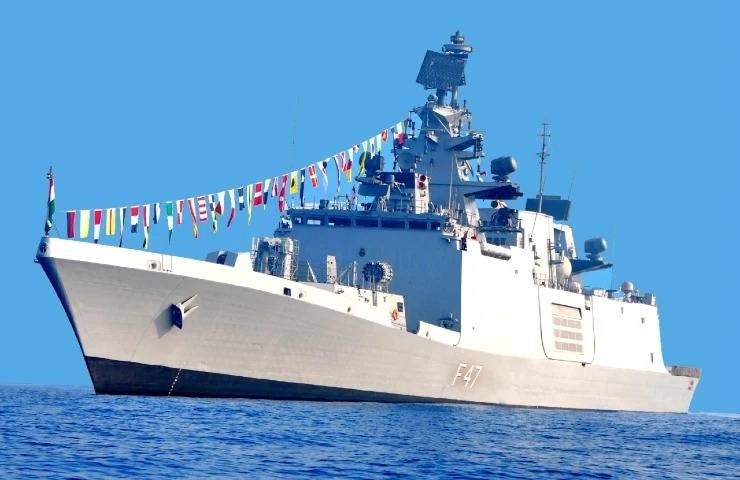
Despite broad hints from New Delhi for participation in the joint patrol, Jakarta did not show any inclination to agree. Jokowi’s concept of ‘poros maritim dunia’ (Global Maritime Fulcrum-GMF) does highlight the importance of Indonesia as the meeting point of Indian and the Pacific Oceans, but it was focussed more to develop and improve the country’s inter-island connectivity to derive full benefits of its archipelagic nature. GMF is more geo-economic than geo-political
Our threat perceptions also vary, more specifically in regard to China. For us, China is an existential threat and an aggressor that constantly encroaches on our territories. For Jakarta, Beijing, undoubtedly is an occasional trouble-maker by encroaching on its EEZ in the Natunas and engaging in fishing and unless the latter is cautious in the Natunas and understands the “points of sensitivity,” the fish-rich waters may turn into a flashpoint. In December 2019, China sparked a major maritime confrontation with Indonesia when dozens of Chinese fishing vessels, along with a coast guard escort, entered Natuna waters. Indonesia responded by summoning China’s ambassador and dispatching warships and F-16 fighter jets to patrol the region. The following month Indonesian President Joko Widodo declared there would be “no compromise” on Indonesia’s territorial sovereignty, and demonstrated his point two days later by visiting the islands.
The creeping incursions have continued even after that, but in spite of the irritation caused by Beijing’s actions, both try to maintain their relations within manageable proportion so that Jakarta does not reach the threshold and look for joining the United States, Japan, Australia and India in their “Quad” grouping.
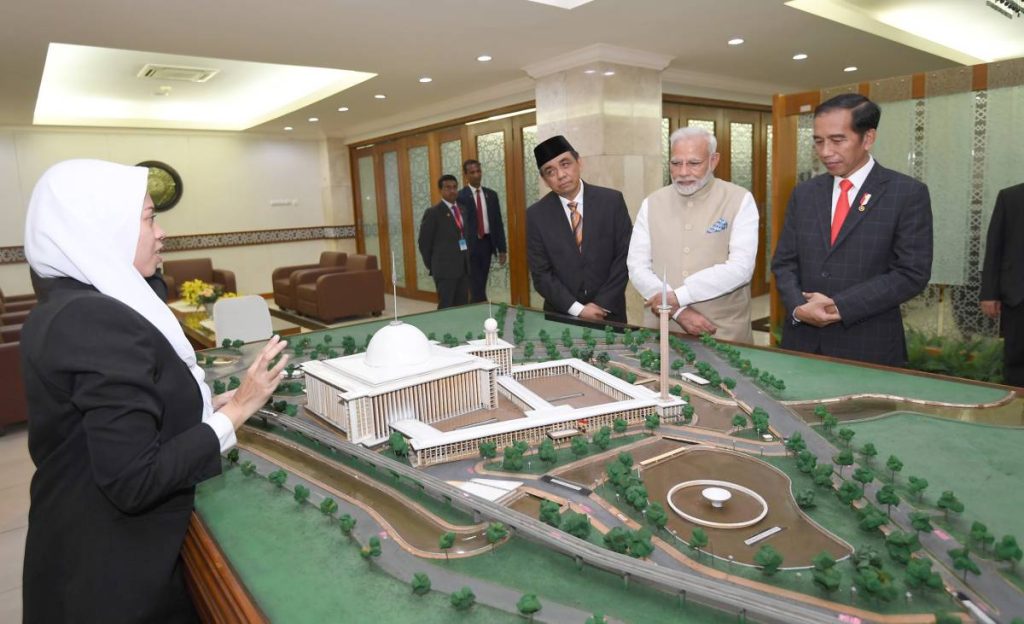
The QUAD has been perceived in ASEAN as a bid to counter China’s growing military and economic might in the Indo-Pacific region, and therefore none have shown any inclination so far to join it. Even while adopting a hedging and soft-balancing strategy vis-a-vis China to secure its territorial sovereignty by building closer cooperation with like-minded countries, including India and strengthening its defence capacities and capabilities, Jakarta tries hard to ensure that Beijing does not get provoked. Indonesia’s critical response to the recent formation of AUKUS have to be viewed within that context.
More importantly, Jakarta’s economic stakes in China are quite significant. Beijing is not only its largest trading partner, but also the fact that unlike India its trade balance is quite low. The total value of the trade in 2020 reached almost US$79 billion. Exports to China reached US$ 37.4 billion. Meanwhile, the value of imports in the same year reached around 41 billion. China ranks second largest foreign investor in Indonesia with investment realization reaching 4.8 billion in 2020 from 4.7 billion in 2019. It is all due to the BRI projects, which includes the construction of airports in Sulawesi and the Jakarta-Bandung high speed railway. The two could not only contribute in Indonesia’s efforts to solve its current account deficit, but also help develop its infrastructure that improves connectivity and reduces transportation and logistical costs.
Such dependence on China has its own costs, no doubt, but the tangible benefits derived from Indonesia’s economic linkages with China outweighs those costs. For another reason, Jakarta remains beholden to Beijing for increasing the latter’s imports of Crude Palm Oil (CPO) from the former, when it was banned in several countries due to a campaign in Europe and tariff barriers in India.
In comparison, India’s trade with Indonesia, although growing fast recently, still pales into insignificance. Indonesia is eying a US$50 billion bilateral trade deal with India by 2025, as the figure has already reached US$ 20 billion last year. Jakarta is keen on enhancing trade and investment ties with India in the area of information technology, health and pharmaceuticals, agro products, automotive components, and tourism related projects. Jakarta sees India as a good investment destination and looking at a comprehensive economic partnership for the mutual benefit of the two countries.
It is these projected flourishing of economic interactions and the resultant development of a mutual stake for each other lies the prospect of maturing of cooperation and synergy in other areas, namely political and strategic. The Comprehensive Strategic Partnership will only then assume greater meaning and substance. For the realisation of some of the expectations and projections, India herself needs to work hard to grow at a much faster rate and become at least a 5 trillion economy, if not more, by 2030. Once that happens, Jakarta will again be pulled towards New Delhi based on a commitment towards democratic values and an open, inclusive rule-based regional order in contrast to China’s hegemonic one. Glass will remain half-full till that time.
(Baladas Ghoshal is a former Professor and Chair in Southeast Asian Studies, Jawaharlal Nehru University, New Delhi. Views expressed are personal and exclusive to India Narrative)
(The content is being carried under an arrangement with indianarrative.com)


